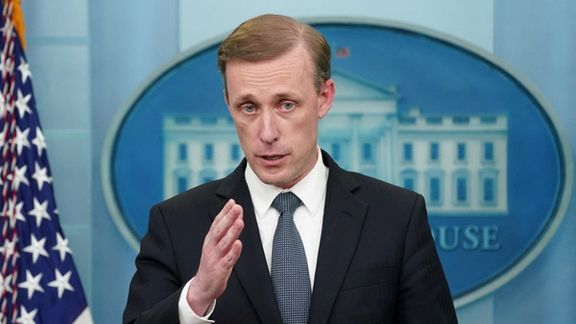US Says Tehran To Deliver Drones To Russia, As Nuclear Talks Stall

Iran has rejected criticism by President Joe Biden, insisting it is the most stabilizing regional force, as Washington says Tehran may deliver drones to Russia.

Iran has rejected criticism by President Joe Biden, insisting it is the most stabilizing regional force, as Washington says Tehran may deliver drones to Russia.
Iran’s foreign ministry spokesman Nasser Kanan responded on Tuesday to an opinion article Biden published in the Washington Post July 9, where he said the US will increase pressure on Tehran until it agrees to restore the 2015 nuclear deal known as JCPOA.
“Emphasis by Mr. Joe Biden to continue the economic and diplomatic maximum pressure policy on Iran contradicts America’s stated goal to restore the 2015 agreement and follows the failed path of the Trump administration against the Islamic Republic of Iran.”
Meanwhile US National Security Adviser Jake Sullivan Monday said that Russia wants to obtain hundreds of drones from Iran, both for surveillance and attack, to use in its war in Ukraine.
He said the US has information that Iran is preparing to train Russian personnel to use its drones perhaps as early as this month, but it is not clear if any UAVs have been delivered to Russia.
“Our information indicates that the Iranian government is preparing to provide Russia with up to several hundred UAVs, including weapons-capable UAVs on an expedited timeline,” Sullivan told reporters at the White House, referring to unmanned aerial vehicles.
This is not the first time that the possibility of Iranian weapons going to Russia has come into the open since the invasion of Ukraine began. The Guardian reported April 12 that according to members of Iranian-backed Iraqi militias and regional intelligence services Russia was receiving munitions and military hardware sourced from Iraq, with the help of Iranian weapons smuggling networks.
The report also said that Iran provided a Bavar 373 missile system, similar to the Russian S-300 to Russia and returned an S-300. The Guardian quoted a source “who helped organise the transport.”
The Russian embassy in Tehran denied that Iran was involved in supplying weapons from Iraq to Russia. “The information that appeared in some media about the supply of Iranian weapons to Russia is fake and does not correspond with reality,” the embassy said in a tweet on April 24.
While the Iranian foreign ministry spokesman responded to Biden’s op-ed, he did not mention Sullivan’s accusation of drone transfers to Russia. Some government-controlled media did carry the news about the remarks but did not mention any official reaction on Tuesday.
Iran has not condemned Russia’s invasion and has only called for diplomacy to end “the conflict”. Media in Tehran do not use the word invasion when talking about the war.
The US accusation will have repercussions within Iran’s political scene. Many former officials and pundits have been criticizing Tehran’s close ties with Moscow and its reliance on Russia while nuclear talks with the United States have stalled.
Iran’s economy is in crisis as US sanctions continue and critics say that instead of a deal with Washington, the government increasingly draws closer to Moscow.